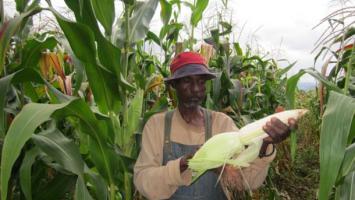The partnership among the United States Agency for International Development (USAID), DuPont and the Government of Ethiopia improves maize productivity among smallholder farmers and increase food production for Ethiopian communities.
As part of America’s Feed the Future initiative, the Advanced Maize Seed Adoption Program’s (AMSAP) objective was to sustainably increase more than 100,000 smallholder farmers’ yields and enhance income potential, while also improving nutrition outcomes in 16 districts over three regions across Ethiopia.
The program has already helped 250,000 smallholder farmers in 53 districts to adopt new technology and implement smarter agricultural practices, far surpassing its 2018 target goal.
This public-private partnership was made possible through a dollar for dollar matching program that runs from 2015 to 2018 and leveraged a $2 million contribution from DuPont. Prior to this program, farmers were harvesting 2.2 metric tons per hectare.
In districts where AMSAP was administered, they now harvest 7.5 metric tons per hectare. Since its launch four years ago, participating farmers have achieved an almost 300 percent increase, on average, in their maize yield productivity. They are also more efficiently connected to markets, which has helped boost incomes as much as $1500 per farmer, per year.
“We’re thrilled to see that we have more than doubled our goal with nearly two years left in our partnership,” said Dr. Beth Dunford, Deputy Coordinator for Feed the Future and USAID Assistant Administrator for Food Security. “It’s these kinds of partnerships that demonstrate the outsized impact we can have when the U.S. development community teams up with America’s leading companies.”
AMSAP provides increased access to training, improved inputs such as hybrid seeds, and provides other technical support, according to the press statement from the United States Embassy in Ethiopia.

